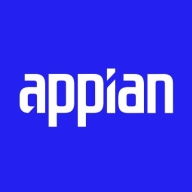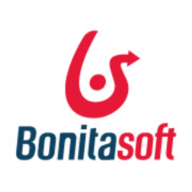

Appian and Bonita are competitive platforms in the BPM category. Appian holds an advantage due to its rapid development, integration ease, and flexible deployment, making it more adaptable and user-friendly, while Bonita focuses on customization and efficient Java integration.
Features: Appian is known for its low-code development, which accelerates app implementation and ROI. It features robust reporting and agile, case-based applications. Its integration capabilities are highly rated, supporting flexibility and ease of use. Bonita excels in versatile platform support and interactive process modeling. Its strengths include intuitive form and flow creation, making system flow clarification user-friendly.
Room for Improvement: Appian's SAIL language and limited UI customization are often mentioned as limitations. Users seek better styling control and native offline capabilities, along with improved Microsoft integration. Bonita's form builder stability and lack of a native workflow engine are areas for growth. Enhancing its connector system and task efficiency are recommended improvements.
Ease of Deployment and Customer Service: Appian offers deployment flexibility across cloud and on-premises models, supporting public, private, and hybrid clouds, which boosts its adaptability. Its customer service is considered excellent, although rapid growth poses challenges. Bonita primarily supports on-premises deployment, restricting flexibility compared to Appian's options. Its customer service is viewed as average, with potential for improvement.
Pricing and ROI: Appian is perceived as expensive but justifies costs with robust functionality and flexible licensing. It emphasizes ROI through rapid deployment and process efficiency. Bonita's Enterprise edition is costlier with a flexible license model. Despite Appian's higher price perception, its ROI through process efficiency is acclaimed, offering significant economic value.
| Product | Market Share (%) |
|---|---|
| Appian | 3.7% |
| Bonita | 2.2% |
| Other | 94.1% |


| Company Size | Count |
|---|---|
| Small Business | 20 |
| Midsize Enterprise | 9 |
| Large Enterprise | 42 |
| Company Size | Count |
|---|---|
| Small Business | 14 |
| Midsize Enterprise | 4 |
| Large Enterprise | 11 |
Appian is a unified low-code platform and solution used by businesses to build enterprise applications and workflows. This product adapts to the needs of clients and the technologies they are already using to combine their data in a single workflow and maximize resources. The platform has four main components through which it transforms the work process for companies of various sizes. They are:
Appian is utilized across a diverse set of industries, including automotive and manufacturing, energy and utilities, education, financial services, telecom and media, transportation, retail, insurance, healthcare, and life sciences. The most frequent use cases of Appian are customer journey, governance, risk and compliance, operational efficiency, supply chain, distributed order management, and environmental, social, and governance (ESG) management.
Appian Features
Appian has various features that allow users to create solutions for their businesses. These features can be separated into a few groups according to function, including automation, low-code application development, and integrations and data. Some of the most frequently used features of Appian include:
Appian Benefits
The benefits of using Appian include:
Reviews from Real Users
A practice leader - digital process automation at a computer software company values Appian highly because the product is easy to develop, low-code, and has a good user interface.
Alan G., an advisory board member at Codecon VR, Appian offers a clear application life cycle, easy to learn documentation, and comes with a fundamentals course.
We monitor all Business Process Management (BPM) reviews to prevent fraudulent reviews and keep review quality high. We do not post reviews by company employees or direct competitors. We validate each review for authenticity via cross-reference with LinkedIn, and personal follow-up with the reviewer when necessary.